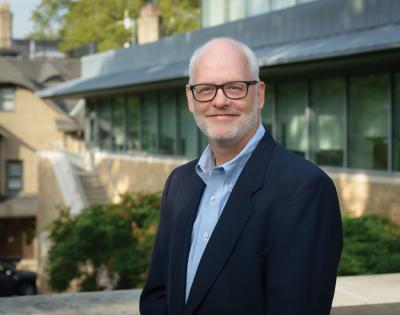News Releases
October 14, 2022
During Homecoming weekend, Case Western Reserve University School of Medicine awarded the school’s highest honor—the Case Medal for Excellence in Health Science Innovation—to Professor George Dubyak, PhD. Dubyak, who serves as both director of Case Western Reserve’s Biomedical Research Training…
October 13, 2022
National Institutes of Health funding will aid in effort to create open-source network for researchers nationwide Case Western Reserve University and The MetroHealth System and are working together to develop an open-source network that will allow researchers around the country access to…
October 05, 2022
The Case Comprehensive Cancer Center (Case CCC) recently announced it received a $2 million grant through the Alliance for Equity in Cancer Care (the Alliance), an initiative funded by the Merck Foundation (the Foundation) and designed to make cancer care more equitable in the United States by…

October 05, 2022
Student Spotlight: Larissa De Souza Class Year: 2024 Program Major: Doctor of Medicine Since arriving at Case Western Reserve University School of Medicine, Larissa De Souza has devoted her time inside and outside the classroom to growing diversity in medicine—realizing the impact it has on the…
October 05, 2022
The National Institutes of Health (NIH) has awarded a $15.75 million contract to researchers led by Case Western Reserve and Duke universities to accelerate development of therapeutic devices that improve chronic medical conditions. The contract is within the NIH’s Stimulating Peripheral…
October 04, 2022
Treatments for multiple sclerosis (MS) can control relapses, but don’t stop the disease from progressing—or promote brain repair. But with financial support from the National Multiple Sclerosis Society (NMSS), a postdoctoral researcher at the Case Western Reserve University School of Medicine will…
October 04, 2022
Case Western Reserve University School of Medicine researchers identify mechanism in brain tissue that may explain disparity between men and women Case Western Reserve University researchers have identified a mechanism in brain tissue that may explain why women are more vulnerable to Alzheimer’s…
October 04, 2022
Treatments for multiple sclerosis (MS) can control relapses, but don’t stop the disease from progressing—or promote brain repair. But with financial support from the National Multiple Sclerosis Society (NMSS), a postdoctoral researcher at the Case Western Reserve University School of Medicine will…
September 29, 2022
Children who were infected with COVID-19 show a substantially higher risk of developing type 1 diabetes (T1D), according to a new study that analyzed electronic health records of more than 1 million patients ages 18 and younger. In a study published in the journal JAMA Network Open, researchers at…
September 28, 2022
Finding suggests transmission between species may be possible In a new study, researchers from Case Western Reserve University School of Medicine have identified the structure of protein fibrils linked to a hereditary form of human prion disease. This insight, they say, reveals the mechanism…

